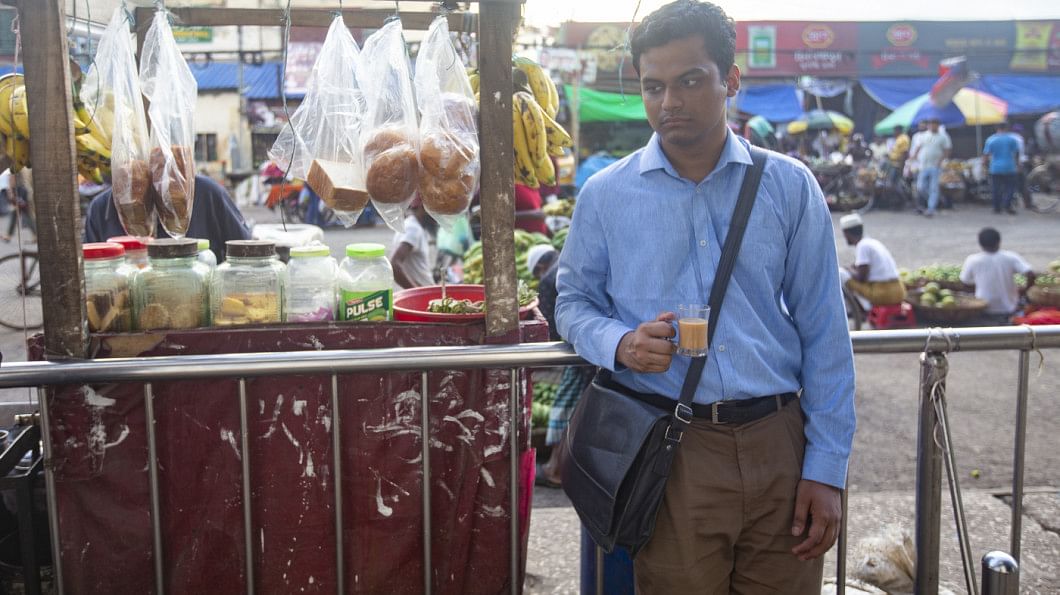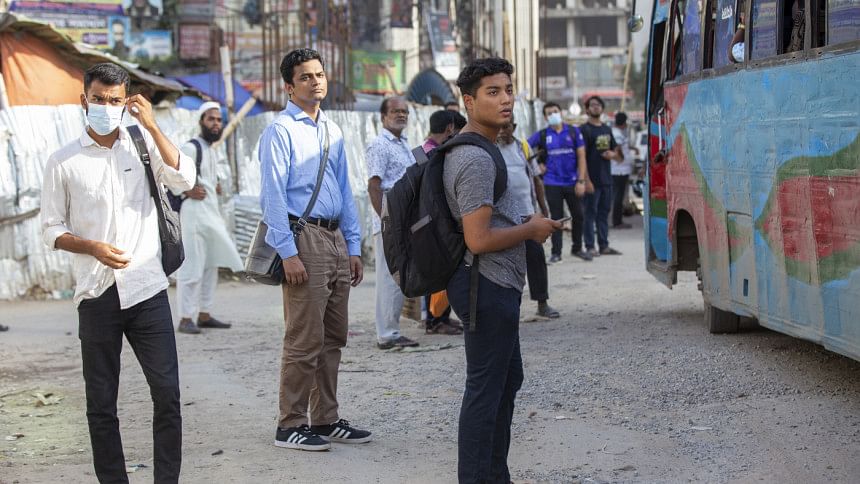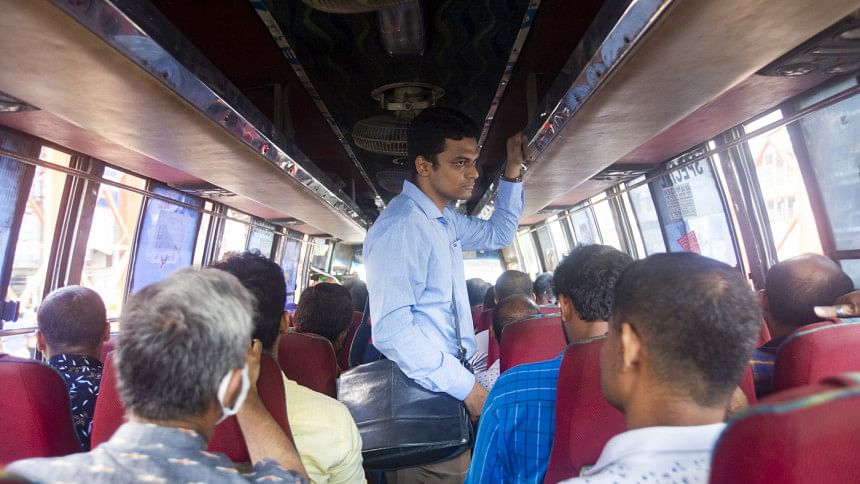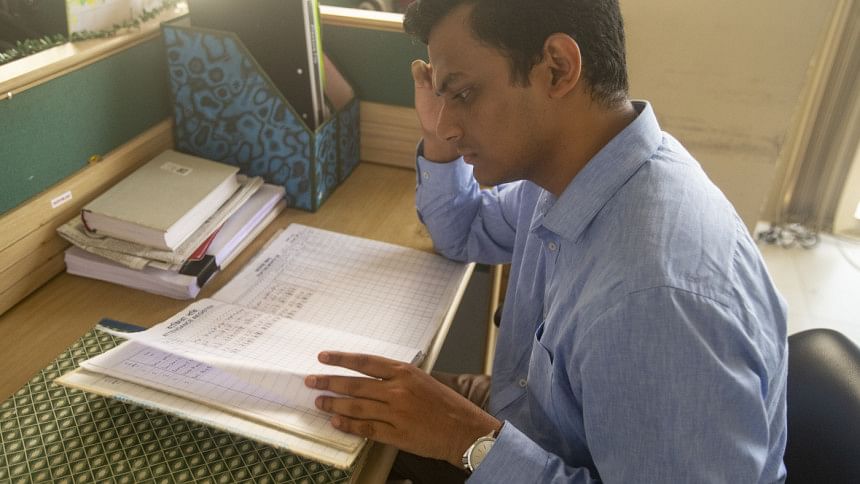Entry salaries for fresh graduates: A Bleak Picture

From an outsider's perspective, the Bangladeshi job market is an interesting phenomenon, with various intricacies and a multitude of systemic problems. However, for someone actively partaking in this market – especially if they're a fresh graduate – it is a nightmare.
If we boil it down to one simple note, the problem with our job market, particularly for the youth, is caused by the dearth of entry-level job openings versus an excess of graduates. An Economics graduate might say that it's a "high-supply and low-demand" situation. A Business graduate's thoughts might circle around the will of the "free" market.
While both these opinions could be right, chances are that the Economics and the BBA graduate are unemployed, and this isn't a commentary on their capabilities or qualifications, but about the market.
We often get caught up in discussions surrounding youth employment, but a topic we forget to talk about is whether those getting hired are even being paid a fair wage. Looking at the state of entry-level salaries in Bangladesh, it becomes increasingly clear that there exists a high level of dissatisfaction.
Having spoken to multiple entry-level job holders, it seems the average monthly entry-level salary in Bangladesh ranges between BDT 20,000 and 30,000.
If we compare the salary to the average living expenditure in Dhaka, we start to paint a rather bleak picture. According to data collected from a recent Centre for Policy Dialogue (CPD) study, the average living cost for one person – who maintains a regular diet and lives in a one-bedroom apartment inside the city centre – was calculated at approximately BDT 23,003 per month, as of May 2022.
On closer inspection, this data was based on assumptions that fall short of what many young people would consider minimum standards. For example, transportation cost for a given work day was calculated at BDT 80, while no travel cost was considered for non-work days. When it comes to hygiene expenditure, the calculation included five regular sanitary napkins, whereas most women require 5 to 6 times as many for a usual cycle.

It's a fair assumption that the numbers based on the study are significantly deflated. Given the state of entry-level salaries, and the fact that many fresh graduates have to bear the costs of their family members as well, making ends meet is not always an easy task.
The spotlight now falls on new graduates, or those about to enter the job market, because these jobs, at least in their initial phases, are some of the lowest paying ones in our country.
But why is that? Why is our youth having to struggle financially despite securing these job positions?
Farhan Mahmud*, a junior web developer at a local software company in Dhaka, and Shweta Saha*, an intern at an international non-governmental organisation share their experiences.
"My first internship was at a marketing agency that paid 4000 taka per month," says Shweta. "Initially, I didn't mind. People around me always said that first internships should be about learning and gaining experience, and not about the pay. I took their word for it. At least I could learn something and enhance my resume."
Soon, Shweta realised, her internship offered very little in terms of skill development. "I was in-charge of developing my skills by myself without any mentorship," she recalls.
Farhan's experience as a web development intern was slightly better. Despite poor pay, his employers were providing him hands-on training. However, after the internship ended, Farhan wasn't too pleased with their full-time offer.
"They offered me a position and with a salary of 20,000 taka," says Farhan. "I didn't like it at first, but took the job anyway. My seniors told me how this was only the start and that I could ask for more later. That never happened, because salary negotiations were discouraged there."
Salary negotiations are vital at present, given the unstable global economy. Freshers know that, and despite trying their best to negotiate a raise, most of them are turned down.
"The advertising agency I worked at never considered increments on their own," says Shweta. "They only increased salaries whenever a more experienced employee would try to put in their resignation."
Farhan had a similar experience with salary negotiations. "I knew that I could be replaced easily," he says when talking about why he didn't push much for a raise. "With so many CSE graduates out there, it wouldn't take them long to find a replacement. However, if a senior and more experienced developer would approach them for a raise, they would oblige in most cases."

Nayem Chowdhury*, an experienced candidate, has been finding it difficult to find a job after leaving their last one. "Based on my experience, working as a full-time employee for almost 10 years, I've been called for many interviews, but even with enough experience, it's difficult to find employers eager to meet my expected salary range," he shared.
Why are employers so reluctant to pay even experienced candidates a decent amount at first? Moreover, do they consider the country's latest economic state when evaluating their salary packages?
Human Resources executive at an IT company, Parisa Mumtahin*, shares her thoughts.
"When preparing salary packages for employees, we consider factors like house rent, conveyance, medical allowance, inflation rate, etc.," says Parisa. "We also review our compensation packages every year."
"We refer to a standard salary chart when hiring," she adds. "Otherwise, if we hire an executive who earns more than the current executive, our current employees may become dissatisfied. As a result, if the candidates' salary expectations exceed that amount, we engage in a formal negotiation process with them."
"There is no additional pressure to save money while hiring new employees, and exceptions are often made based on the candidate's qualifications and experience," continues Parisa.
However, a fresher is unlikely to have high qualifications and experience. For them, the only hope of landing a decent salary is to find a workplace that offers freshers a compensation package without demanding too much from them, or allows them to negotiate an increment when necessary, such as during price hikes. Sadly, such companies are few in existence.

Sohel Mahmud*, chief consultant at an HR and management company, provided more details on the matter.
"In terms of creating salary packages, it varies from company to company," says Sohel. "Well-structured companies, usually MNCs, conduct market analysis to set salary packages. For these companies, it is about offering salaries that can match their direct competitors'. Smaller organisations usually opt to create packages based on expectations from new recruits or by allocating a portion of their budget to it."
"Living expenses are taken into account when setting entry-level packages," he adds. "But it can be difficult at times since smaller companies might not have the budget for it."
When asked about how often salary should be revised, and the ideal way to create an entry-level package, Sohel replied, "A good company should evaluate their existing salary packages every two years. Market analysis should be conducted to see what other companies are paying, and cost of living should be considered to ensure employees have a decent standard of living. Employers should also pay for the skills they require. Underpaying recruits means that you are devaluing the skills your company requires. Instead, employers should have entry-level salary packages that allow new recruits to thrive."
There's a lot to unpack when discussing the issue of fresh graduates and how often they're underpaid. Right now, in the current economic context of Bangladesh, the focus should be on how employers can accommodate these freshers such that they can afford a life in Dhaka, or any of the cities across the country.
Failure to do so will result in our youth failing to bring a positive change in our economy – an economy where most of them have no place to go.
*Names have been changed upon request
Faisal Bin Iqbal is sub-editor and digital co-ordinator at SHOUT, The Daily Star.
Aaqib Hasib is sub-editor at Arts & Entertainment, The Daily Star.


 For all latest news, follow The Daily Star's Google News channel.
For all latest news, follow The Daily Star's Google News channel. 









Comments